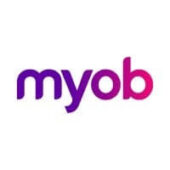When you’re a small business owner, you have a lot of hats and different tasks to juggle. Your day is inundated with a constant stream of orders, supplies, staffing, invoicing and issuing receipts, as well as the day-to-day putting out of spot-fires which seem to naturally occur.
Staying on top of your paperwork puts you in control of your own business.
It also helps drive important financial decisions you’ll need to make to steer your business in the right direction. Putting some simple bookkeeping processes in place will help you get through your day a lot easier. They don’t have to be hard, but these five bookkeeping tips might make a world of difference.
1. It’s all in the software
Our first bookkeeping tip has to do with tools. Choosing the right accounting software that suits your business will go a long way to streamlining processes that you’ll otherwise need to do by hand.
A good accounting software package will:

- Monitor your income and outgoing financial activities
- Generate financial and cash flow statements
- Simplify invoicing and receipting
MYOB is a great example of software that helps small business owners with integrated solutions for accounting, tax, payroll, cash flow, invoicing, and bank reconciliation.
Pro Tax Tip: Businesses earning an annual gross turnover of more than $75,000 must register, collect and pay the Goods and Services tax (GST).
If you hire staff, keep in mind that your accounting software should have Single Touch Payroll (STP) integrations that connect to the Australian Taxation Office (ATO) with each pay period. You’ll need to deduct your employees’ Pay-As-You-Go (PAYG) tax as well as pay their superannuation.
There are several good options available and include cloud options allowing you and your bookkeeper to work anywhere there’s an internet connection. One classic option is MYOB, which allows you to do business anywhere from any device including:
- Sending invoices
- Capturing expenses on-the-go

- Seamless integration with popular apps
Learn more about MYOB’s software here.
Pro Tax Tip: Don’t forget you can claim the cost of your accounting software subscription as a tax deduction as well the costs of organising your tax affairs.
Editor’s note: If you have a small business but no business website, now is definitely the time to get one. Build a site yourself — truly no tech skills needed! — or let the pros at GoDaddy build one for you.
2. Don’t mix your bank accounts
Bookkeeping tip #2 is easy to accomplish.
Most small business begin with the nugget of an idea. Some blossom into a side-hustle, while others take off from the day they’re started.
It’s easy to take the money you make and use from your private bank account.
But after a while, things get messy if you can’t separate your private and business expenses.
When your business is growing and flourishing, it’s hard to see what your private versus work-related expenses are if everything is in the same account. Seeing your day-to-day business activities and expenses helps you clarify exactly what your business is generating when it’s not mixed in with other income you may earn.
Pro Tax Tip: It pays to open another account that is dedicated for tax, as well as a business account. That way you’ll have the money you’ve already set aside to pay a tax bill instead of potentially digging into your savings.
Your bookkeeper will help you set money aside for any personal income tax you might have to pay. They’ll also tell you as you go, so there won’t be any nasty surprises at the end of the year.
Your bookkeeper will also help you allocate expenses throughout the year, so they’re easier to deduct when you need to lodge your business tax return.
If you have to purchase capital equipment, you might be able to claim an instant tax deduction in the year in which you purchased your item. Your bookkeeper will also keep track of a depreciation schedule on assets if they don’t use the instant asset write off.
This leads us to our next must-do point.
3. Keep track of your real-time revenue and expenses
You can only make good decisions based on the information at hand.
If your information is out-of-date, any decision you need to make might come too late.
When you track and organise your expenses and revenue streams in real time, you’ll be able to see an accurate snapshot of your strengths and weaknesses, which will help you move ahead with confidence.

The wisdom of outsourcing
This is where a bookkeeper can come in handy. You’ll be able to have a conversation with them about your business. They’ll be able to provide advice about any:
- Changes you might want to put into place
- Debts you need to collect
- Expenses that could be cut
You can establish a process between you and your bookkeeper that suit you both, that can be changed with your growing business and needs.
Many small business owners find their breaking point at three hours or more of paperwork a week. Overall, that isn’t a lot of time, but it is enough for your bookkeeping to be put on the back burner.
Having someone available means you can funnel these tasks out, which will free up your time to run your business. But you’ll also get a professional who will be faster and more accurate than you might be.
Pro Tax Tip: If your business is expanding, it might be time to take it out of your back room or garden shed, buy some more equipment or hire staff. A bookkeeper will track your expenses and help you save for these milestones.
4. Keep track of your records
Keeping the right records is a high priority, because with them you can easily track any financial queries that may arise, as well as provide proof of expenses when you lodge your tax return.
The ATO requires you to keep business records for 5 years, and in some cases 7 years, to prove your expenses.
If you don’t have proof, you won’t be able to claim tax deductions.
Your records should prove that your expense was work-related, that you’re already out of pocket for the cost and that you’re only claiming the business portion of the expense. Keep all financial documents to support your claims. These could be:
- Receipts
- Tax invoices
- Depreciation schedules
- Rental agreements
- Bank statements
- Contracts
- Documentation from other financial institutions
Pro Tax Tip: You can keep electronic records if the copy is a clear and true representation of the original. It must be in English. Make sure you have backup copies in case of data contamination and damage.
5. What to hand off to your bookkeeper
At first your bookkeeper might seem like superman and leap stacks of bills in a single bound, saving you time, money and headaches. But you should know what to ask for. You can ask them to carry out all of your bookkeeping tasks, or just ones that you nominate.
The key tasks of a bookkeeper are:
- Enter transactions into the cash book with the correct account codes, sales and tax options
- Process bank reconciliations for your bank accounts
- Prepare sale invoices
- Enter purchase invoices
- Prepare a creditors’ report
- Upload batch payments to the bank
- Process payroll to your staff on time and make sure your STP (single touch payroll) requirements are fulfilled
- Process tax reports and set up any payments that are needed

- Prepare monthly financial statements
- Advise you on the real-time financial state of your business and discuss ideas on how to improve processes
- Use your existing accounting software or advise of a more suitable option
As a small business owner, you might have one or two staff, but don’t generate enough business to hire a full-time bookkeeper.
Outsourcing is a great way to get the help of a professional without employing them yourself.
They’ll make sure their tasks are done right, leaving you time to get on with your business.
Whether it’s one day or five days a week, ITP Bookkeepers will tailor our service to suit your needs. You’ll benefit from professionals who understand a variety of industries and can offer advice for your unique needs. Book a free consultation to chat about your unique requirements.
The information contained in this blog post is provided for informational purposes only and should not be construed as an endorsement or advice from GoDaddy on any subject matter.






